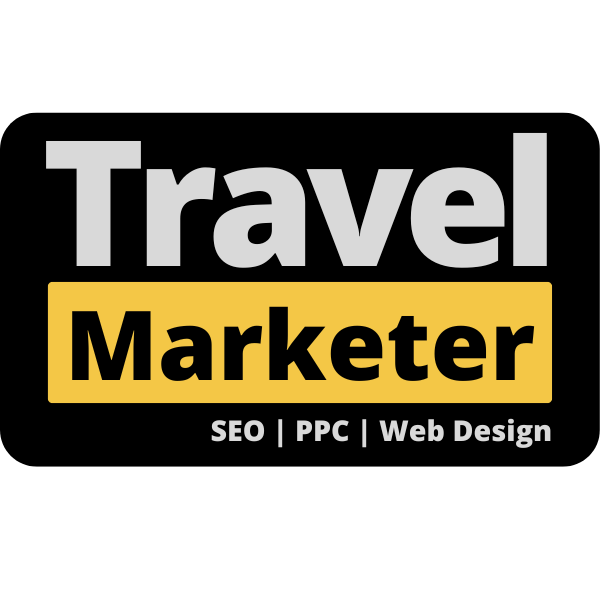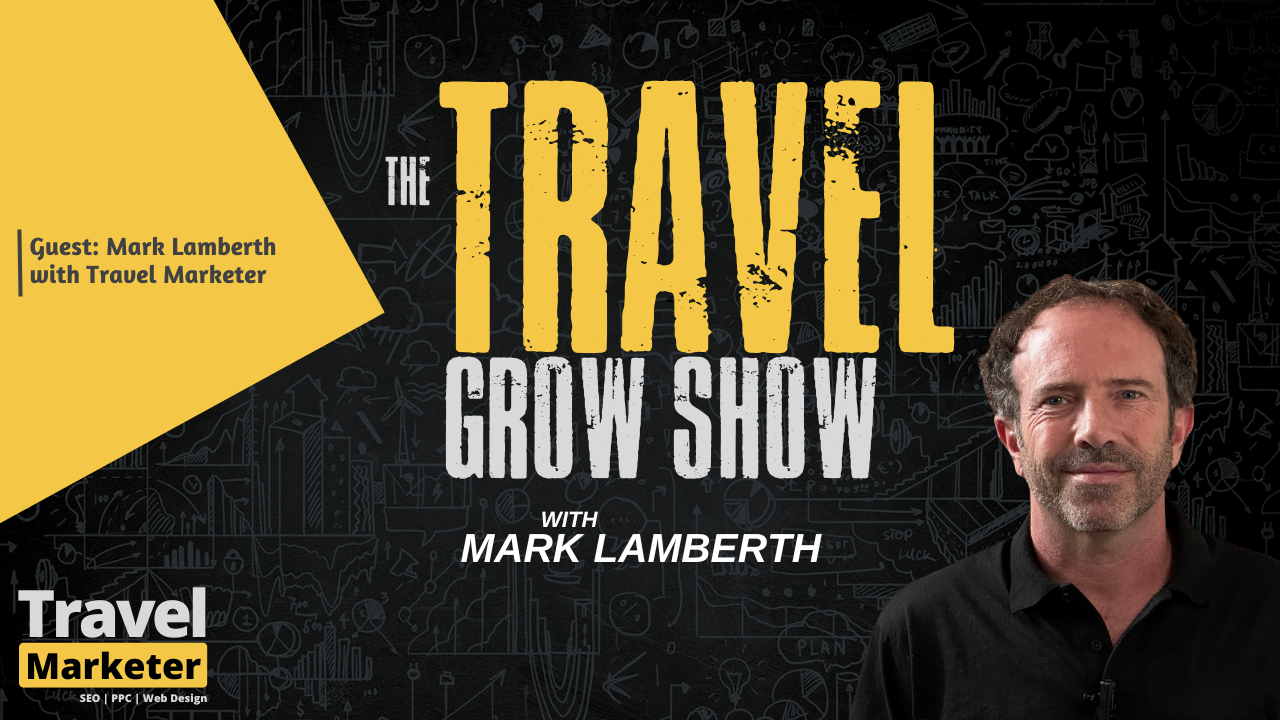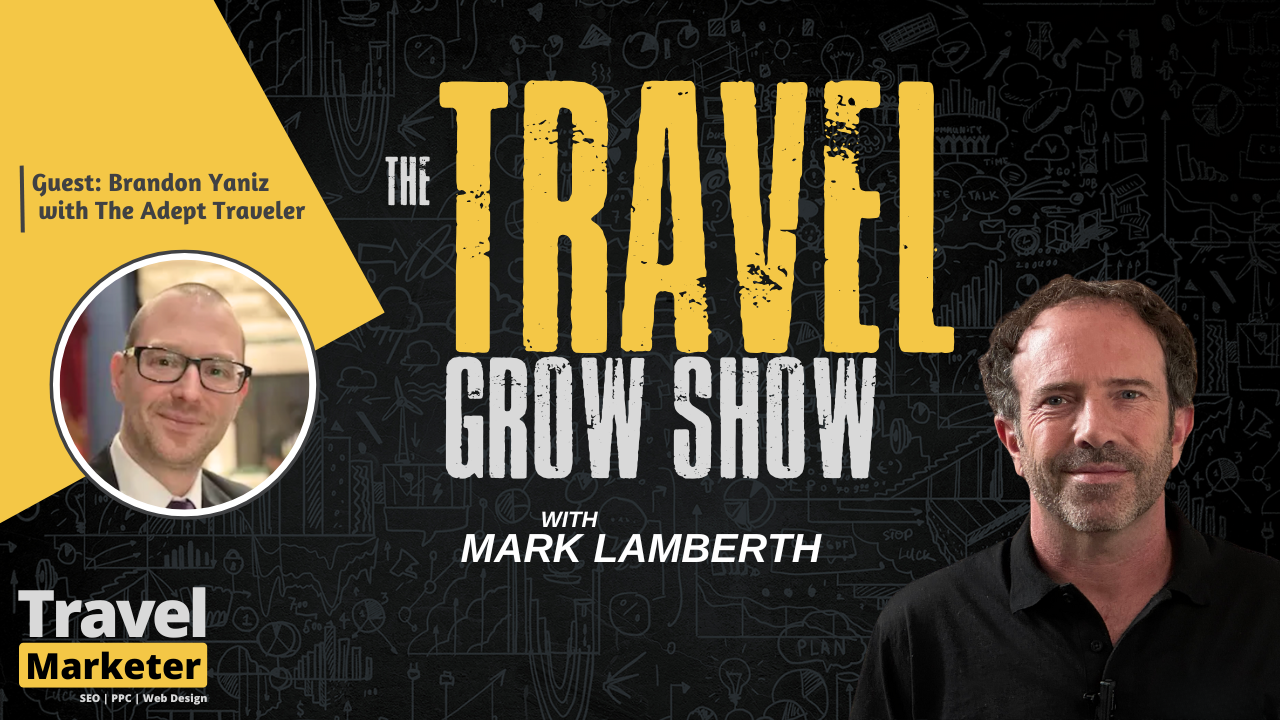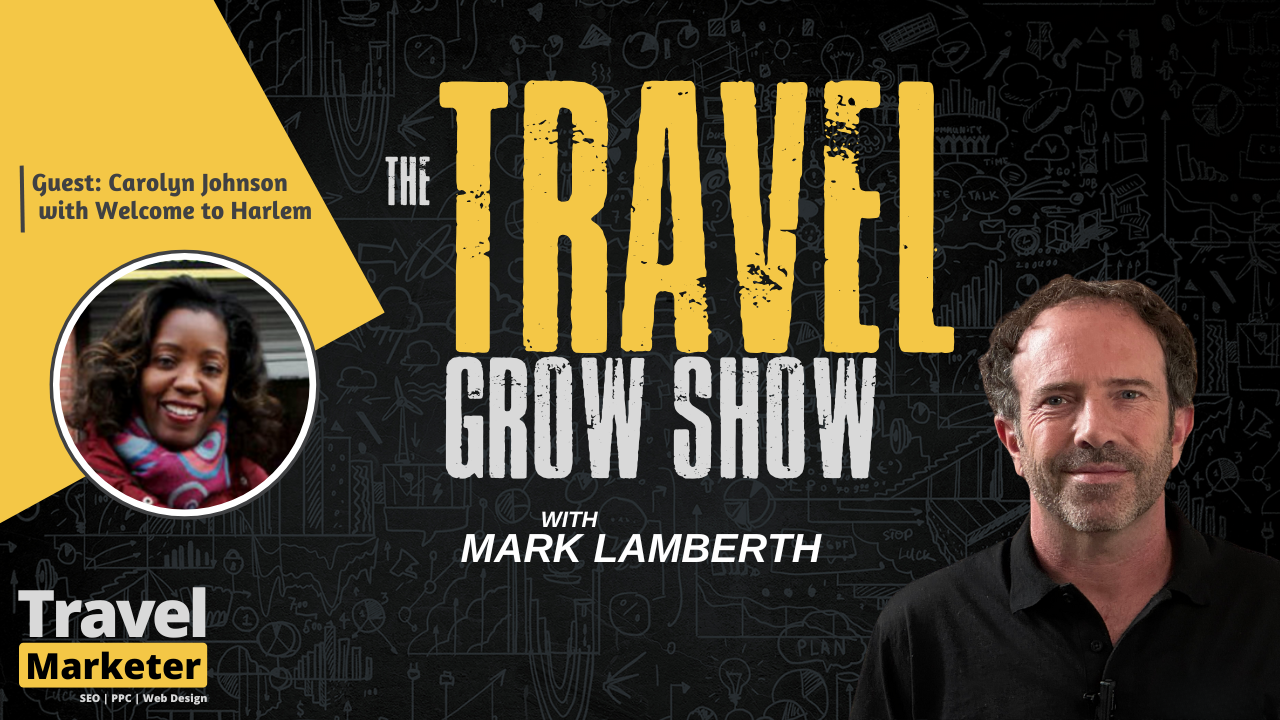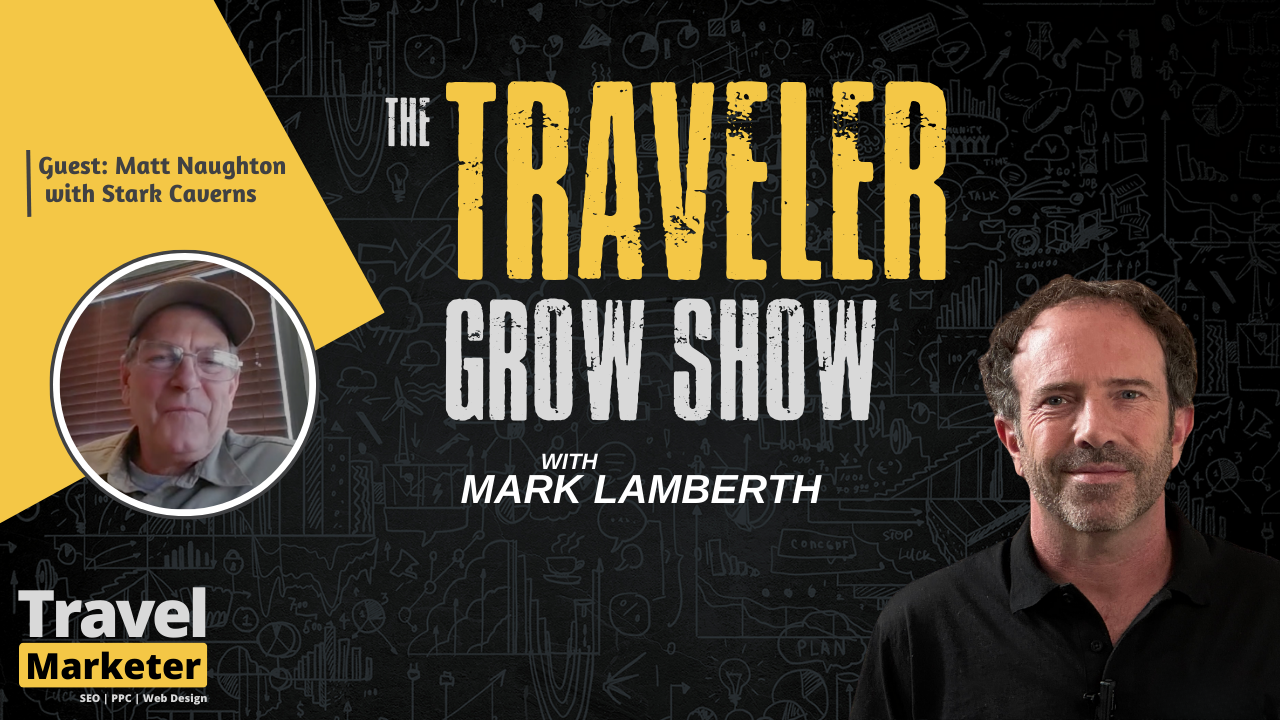From Accidental Tour Guide to Harlem Tourism Maven: Carolyn Johnson’s Success Story
High-end remodeling company Beautiful Home Services, founded by Andrew Blate and Craig in 2006, has built a reputation for honesty, exceptional craftsmanship, and specialization in kitchens and bathrooms. By narrowing their focus, they established a highly profitable and efficient business model. Andrew highlights how long-term employee retention and strong leadership are pivotal to maintaining their company culture and delivering consistent quality.
Carolyn Johnson’s journey with Welcome to Harlem began as a happy accident when she helped a friend complete a tour guide course. Now she’s immersed herself in tourism marketing, to fully retire and grow.
Her serendipitous start led to a thriving walking tour business that has been growing steadily for 21 years. Johnson’s success stems from her deep connection to Harlem and her commitment to showcasing its rich history and diverse culture.
""Every state has the same convention or same organization and stuff like that to help small businesses and stuff in travel and tourism." - Carolyn Johnson
Welcome to Harlem has expanded its offerings from basic walking tours to include specialized experiences like the Harlem Civil Rights tour and jazz and gospel events. These additions have not only attracted more visitors but also supported local businesses and artists. Johnson’s innovative approach includes creating educational tools like the Harlem Monopoly game and online lessons, further cementing her role as a cultural ambassador for the neighborhood.
Key to Welcome to Harlem’s growth has been Johnson’s partnerships with organizations like NYC & Company and her focus on providing immersive experiences. By incorporating local cuisine and creating opportunities for meaningful interactions, she ensures visitors leave with a genuine taste of Harlem’s vibrant community.
Johnson’s story is a testament to the power of passion, perseverance, and community engagement in building a successful tourism business. Her advice to aspiring tour operators emphasizes the importance of thorough research, engaging storytelling, and starting small to build a solid foundation.
Topics Discussed
- Organic Business Growth
How Carolyn Johnson built Welcome to Harlem from the ground up over 21 years. - Diversifying Tour Offerings
The expansion of Welcome to Harlem’s tour portfolio to meet visitor demands. - Tourism Marketing
The importance of collaborating with local businesses and organizations for tour success. - Cultural Immersion Strategies
Incorporating local cuisine and experiences to enhance tour value. - Educational Tourism
Creating supplementary products like Harlem Monopoly and online lessons to expand reach. - Marketing Through Experience
Using gospel and jazz events to attract more customers to walking tours. - Community-Centric Approach
Balancing tourism with supporting local businesses and preserving Harlem’s heritage.
Audio Transcription
Mark Lamberth:
Hello, and welcome to another episode of the Travel Grow Show, where we specialize in Tourism Marketing. My name is Mark. I’m your host Today, I have the pleasure of speaking with Carolyn Johnson over at Welcome to Harlem in New York City. Carolyn, thanks for being with us today.
Carolyn Johnson:
Thank you for having me.
Mark Lamberth:
Fantastic, Carolyn. So we’ve taken a look, looks like an amazing business. You guys have touring the historical places and really teaching people about just the beauty of Harlem. Maybe you could tell us a little bit about just kind of the business, how it got started, and where you guys are at today.
Carolyn Johnson:
Okay, so my name is Carolyn Johnson. I was born and raised here in Harlem, and the reason why I got into the tourism, or it was strictly by accident, one of my neighbors, who was my best friend, she had actually gotten a grant to teach people how to be tour guides, and she was actually short, A couple of students, she calls me in a panic. I go grab some neighbors. So they said we can sign up for the class so she can get her grant money. And it was a six weeks course up the City College of New York, which I had actually graduated from, and I loved it. I love history, I love reading and stuff like that. So after that, I went and got my tour guide license. Then I started walking to Harlem, very slow grind because a lot of the hotels and businesses, who are you?
Why should I work with you? Why would I trust sending people up to you? And stuff like that. So at the beginning it was extremely slow, but I just kept on plugging along. I would get a toy here and there. Then finally, I had hooked up with NYC and Company, which is the major travel and tourism for New York State. And I joined them and then they start giving me tips and things like that on how to grow my business. And then they eventually hooked up with Alan, which is with Jennifer. And these guys, they are fabulous. They do seminars. They literally take you by the hand and treat you like you’re a kindergartner. And that’s what I needed. I was totally clueless to what I was doing. So they have these seminars that show you how to present your product to the main businesses and stuff like that, like via tour and get your guide and things. And once you get in the door and you hook up with these guys, then the business starts flowing. So now the business is starting to flow. It’s growing nicely and stuff like that. But in the meanwhile, I’m still working a nine to five. So now I got to find tour guides.
I found a couple of tour guides. They would do the tours during the day for me. I would come home in the evening and do tours and on the weekend and stuff like that. And it grew eventually. And I got a small office space and it was subtly growing and stuff. And right before the pandemic hit, I had to relinquished my office space. I was like, I just went out. I’m spending too much money in this office space. I can do it from home.
And that was a good look. But after the pandemic coming out of that, I had to hire another five tour guides. My business just blew up out of nowhere. Really. Wow. Okay. Yeah. So I started Welcome to Harlem in 2004. And 10 years later I started Harlem Jazz Box with one of my neighbors, Craig Harris, who’s a world renowned jazz musician, where we started doing live gospel and jazz as a supplement to the tours because I was realizing some things were missing. I shouldn’t have to scramble to find jazz and gospel and stuff. So we started producing it ourselves, which turned out to be one of the best things we did to help grow my business as well. Consider now we supply the gospel and jazz and stuff. We actually had added on the second night of jazz, now we do jazz Thursdays and Friday nights and stuff. The demand was so prevalent and I needed inside of the community and stuff. But it’s been a 21 year journey and it’s been slow. But I can honestly say every year my business has grown. Being with NYC and conventions, they’ve really been the backbone to my business.
Mark Lamberth:
Okay, amazing. Taking feverish notes here,
Carolyn Johnson:
But I want to Sure. Every state has the same convention or same organization and stuff like that to help small businesses and stuff in travel and tourism.
Mark Lamberth:
Okay, amazing. Fantastic. And I saw that you guys have got a bunch of different tours. I mean, to see this Harlem Civil Rights walking tour with lunch. I see the jazz tour and the gospel tour, also the Civil Rights virtual tour. So over time, you’ve rolled out more and more tours to kind of, as you’ve seen the need for what folks are looking for?
Carolyn Johnson:
That’s correct. I start off with maybe two or three, and I think we’re up to maybe six different tours that we do. We also have the civil rights, the Harlem Renaissance, Mount Morris Park, the Jam and Jazz, and one other tour. And we’re actually working on two other tours that are going to be much more by trivia to see what you really know about Harlem. One is going to be based on street signs because a lot of these, we have tons of streets named after people, and I want to test people’s lives to see if they know these people and stuff. So it’s going to be kind of a little trivia as we walk along. You got to remember the clues, and then at the end it’s going to be like, all right, get out your phone and let’s see how you do here and stuff.
So we have a couple ideas, and I’m focused on another one that’s going to be much more architectural inside of West Harlem, because West Harlem has some of the most beautiful architecture up there, trying to build something around that that would encompass a four or five block area, just really focusing on all the architecture. That’s simply a gorgeous neighborhood. When you City College, Hamilton Grange, convent Avenue, just coming all down there, you can just spend a day weaving in and out of the blocks looking at all this beautiful architecture. And another thing that was really important when I was putting my tours together was to include lunch. They have a meal because I wanted to support my local businesses
To make sure it’s not just about coming up to Harlem, walking around and leaving the village. It’s a lawyer going to sit down, have something to eat, taste the culture, and now we can Kiki a little more and we can learn a little bit more about each other. And people really appreciate it because a lot of times we take ’em to different restaurants. Oh, I’ve never would’ve came in here. But then when they get the food, they were like, oh my God, this food is so good. So we might have African food, we might have Dominican food, we might have Jamaican. It is like we eat all over the map and people really enjoy that and stuff. So it’s not just about coming up here and leaving without putting additional dollars within the community.
Mark Lamberth:
Wow, incredible. So Carolyn, the gospel and jazz tours, you said that has helped the business a lot, kind of creating those and having those in-house, I guess you would say maybe it’s kind of obvious. I mean, how has that helped the business? I mean, are those your most popular tours or is it given some kind of more promotion to the community? I mean, how has it helped?
Most Recent Podcast before Carolyn can be accessed here.
Carolyn Johnson:
Well, as far as everybody loves gospel and the fact that we do a gospel concert on a Saturday, they don’t have to go to the church if they don’t want to, because some people, they just want to go for the gospel music. So it’s not disruptive to the church. It’s a one hour gospel concert. But when they come to the website and see the gospel concert, they’ll be like, oh, wait a minute, you do tour too. They like, oh yeah. So they might latch on the door Torres, well, oh yeah, I booked a tour next week with you too, but I want to do the gospel today and I’ll see you next week. We’re doing a walk and with you. So they just helped put more eyes on what we do and stuff like that. So yeah, it really just helped bring more foot traffic to the website by having the live jazz and gospel and stuff.
Mark Lamberth:
Wow, incredible. And I mean, you’ve been doing this for a long time and you’ve got, can I ask you, how many folks do you have on your team? Maybe fluctuates, but
Carolyn Johnson:
Like I said, I have the five tour guides and then it’s me doing everything else in the evenings and the weekends. I’m sitting up being on the computer keys bet. As far as with the jazz and gospel component, it’s four of us that do that because we work with another organization called Arts Education and Continuum, and that’s where we get our jazz musicians out of their program. That’s where our jazz musicians come from. And Craig also curates. We have five different gospel groups that we work with now. We have ’em on a rotating basis and stuff like that. So it’s four on that side. But as far as welcome to Harlem Go, it’s really just me and my tour guides. I just do what you got to do. But thank God I’m retiring this year and I can just focus on this and stuff like that.
And this has led me, I made the game Harlem Monopoly as a learning tool for people to learn about Harlem. So it’s the same concept as Monopoly, but it’s just based on Harlem. And this version that I have out is based on the Harlem Renaissance and stuff. So I also did other educational things like I have a website known as Harlem Roots. I realized when I was doing a lot of educational tours with kids, they really didn’t have a clue, even though they said they were studying under the Harlem Renaissance or other things in school. So I have online lessons that can be purchased that they want to know about WB Du Bois, Malcolm X, these different people. I even got lessons up on Alexander Hamilton and George Washington because these guys had a footprint in Harlem back in No kidding. During the colonial period. And that’s the diversity that I’m trying to show people about Harlem.
It’s not just the African American community. It started at the sleepy Dutch village, and you had Defend the Dutch, the Irish, you named it. Everybody has come through Harlem. So I just want them to know the diversity of the community as a whole and all these different factors that made it what it is today. And I just launched a podcast called The Little Harlem Time Trotters where these two kids traveled back in time and meet individuals and stuff like that. So I’m just trying to make it as educational as possible. So if people don’t like doing this, they might do that or something like that. But I’m just trying to give them as many options as possible because Harlem has a fascinating history. It’s not just African-American history, it’s American history and world history encompassed the inside of Harlem.
Mark Lamberth:
Wow, amazing. I saw you guys have got just tons and tons of five star reviews. People absolutely love you guys, which is, it’s just such a great statement about the work that you do and the community you support. I mean, I can only imagine just the history and depth and the connection you have to Harlem having grown up there and doing some amazing work. Now, you’ve been at this for a long time. You’ve been at this for 20 plus years, and we’re talking with tour operators and folks who may be leading tours in different places that are looking at how to grow their business. You’ve grown this really organically. If someone’s starting today
From the ground up and they didn’t grow up in a place, for instance, maybe they move somewhere, they they’re inspired to go and started a tour business. Do you have a couple of tips on how they may be able to start and get some quick traction, whether that be you met up with these guys, YC conventions, also arts education. Is it hooking up with other kind companies or organizations in town? Is it doing any kind of marketing? Is it building your website first? What are some thoughts about how folks can grow their business in a little less than 20 years if you want to get two operations up? Yeah,
Carolyn Johnson:
It is a slow grind, but I would tell anybody, if you’re going to start a tourism business, know the neighborhood or the community and found, I printed out every landmark in Harlem of them
Because when they landmark a property or something like that, they give you all the history, all this vital information is in there, the people that lived there, things that happened and stuff like that. I’ll pull up all the landmarks in your community and read their first. Then I try to, when I grid my tours, I try to grid ’em maybe 10 to 12 blocks and keep them. So it’s an easy walk and just focused on maybe 10 to 12 sites and stuff like that. But also, while you’re doing that, like I said, the landmark write-ups will give you little tidbits about people that live there, and that’s when you sprinkle into your story because the people think, oh my god, so much information. But it is just about reading and remembering, because you should be able to walk every block on your tour and tell a story,
And that’s very important. You should not have long stretches where it’s just dead silence and stuff. Engage your people. We always tell them, ask us as many questions as you want to ask us. If we don’t know it, we’ll Google it. If we can’t Google it, I’ll follow up and give people the answer. If we don’t know the answer to a question, and you kind of want to make ’em feel like you are friends at the beginning of the tour, like friends hanging out and having a casual walking conversation and stuff so they can loosen up and be more engaged. It just shouldn’t be a one-way conversation. But I would say just start off on one or two tours. Hone in on those tours, get a website. Wix, somebody can make you nice little website. I’ve got this fabulous girl that’s making me all my websites over.
I mean, these are going to be blown away. And just do one or two tours. Don’t try to accommodate people with, oh, I want a one o’clock, 11 o’clock, or three o’clock, just do one tour a day and just focus on that. And then you just add on another one and another one and go to your local Chamber of commerce. So then this way you can build that safety net of businesses around you that will encourage you and give you words of wisdom and tell you little things to do to make your tour much more appealing and stuff like that. Because I’m fortunate enough to have Billy Mitchell from the Apollo Theater who knows everything about Harlem, and when I told him what I was going to do, he was like, if you need anything from me, and I would go to him if I had a problem or if I didn’t know something, and he was 24 7, was there to encourage me to keep me going. It was just that extra guidance that you really need when you’re stepping down into a environment that absolutely nothing about. I mean, zero zero. So yeah.
Mark Lamberth:
Wow. Wow. Incredible. Well, so I’ve been taking notes here just to kind of restate the list, the very valuable list that Carolyn just shared with us, so with some ideas with how to have a successful to start up a successful tour business is to first live there, know the place well, and then we want to read everything that we can about the place, like landmark type, when they’re creating historical landmarks. You can read those. Got a lot of historical information in that super helpful. Choose 10 to 12 blocks, not just a huge radius, because you don’t want to walk and have big distances while you’re going somewhere else. We want to engage with our audience quite a lot. And so really kind have that friend feeling like walking down the street and just kind of talking, tell ’em to ask you as many questions as possible, and then just to do one tour a day. So don’t overextend yourself. Get that one tour down and really figure that out in the dynamics of it. Maybe have some colleagues or allies like Carolyn has had someone that can help who’s got just a higher level of experience with some particular part of your tour can come in and help out. Is that a good place to get started here, Caroline?
Carolyn Johnson:
Yeah. And there’s another company, A LON, Allon, very good company. Jennifer does seminars, and I mean, they literally take you by the hand prep, you all your paperwork, show you how to do your pricing, and once you pass that course, she knows that you can present you to the travel industry, and that’s where you want to be, where you have the Via Tours to get your guides bookings. And all of these people say, okay, I’ll let you put my product up on my website. And once you do that, the tours will start coming in. They might come in slow, but they’ll start coming in, and then you start getting a reputation for yourself and stuff like that. But that’s how you have that constant stream of income coming in because these’s going to feed you because these platforms are worldwide, so they’re always going to feed you and stuff like that.
And then once your website organically starts moving on its own, people will find you that way. But once you get into that pocket, then you can hook into 10 to 12 different companies that are just feeding you, feeding you all the time. And as your name gets out there, 12 companies come directly to me now, oh yeah, I have clients coming in, can you do this? Can you do that? And that’s when you just build that reputation where they know they give me a tour group and I’m going to do my best to make sure that I take care of them and stuff, which is really great. So you have that constant stream coming in from the big dogs, but you got to go out there and still get your hustle on and have your own thing because they take a commission.
Mark Lamberth:
Sure,
Carolyn Johnson:
They take a commission. Yeah. But I mean, if you have your own stream where people come directly to you now, that makes it much better. I’m getting ready to do three buses this Saturday, 150 people. Somebody just called me out the blue. It’s like, okay, we need gospel music. And it, I’m like, I got you. Because I do my own gospel so that I don’t have to go nowhere and be like, I do my own gospel. So yeah, so it really helps to
Mark Lamberth:
Have That is fantastic.
Carolyn Johnson:
Yeah,
Mark Lamberth:
That is amazing. Well, fantastic, Carolyn. And Lemme just one last thing here. Alan is sort of a training organization for tour operators,
Carolyn Johnson:
Correct? Yes.
Mark Lamberth:
Okay.
Carolyn Johnson:
Google them. Jennifer Ackerman, I think is her last name. Fabulous. I mean, fabulous. She takes you by the hand, and I mean, she’s available 24 7. I can text her email or something and she gets back to me. But out of all the organizations that I’ve joined, hers is worth it. They go worldwide. They’ll take your brochures and your products and push you out there and stuff like that. I’m more than sure every state has what we have here with NYC and company, the travel industry for their states and stuff. And hooking to them, they will really take you by the hand. And that’s something that I had to learn. You have, okay, you’re going to be paying six, $700, but it’s worth it in the long run. They really helped me grow my business.
Mark Lamberth:
Wow. Fantastic. Well, Carolyn, someone’s interested if they’re maybe their own tour operator in the New York area and want to kind of collaborate with you, or if someone’s listening to this and just wants to be part of your tour or reach out and connect with you, what are a couple of good ways to find you online?
Carolyn Johnson:
I would say the best way is to email us at info@welcometoharlem.com
Because that is the best way. Once I get the emails, I print ’em out, then I respond back and stuff like that. But info and welcome to harlem.com is my best contact for anybody that’s trying to get my attention. Perfect. Email me and I usually get back to people as soon as I see the email, I’ll acknowledge it and then I tell ’em that I’m going to get back to them and give ’em what they want and stuff. But yeah, that’s the best way. Or they can call at six six two seven seven seven nine, which is our office number, which bounces to my cell and stuff like that. But email is my best way to really get in contact with me.
Mark Lamberth:
Okay, perfect. So info@welcometoharlem.com.
Carolyn Johnson:
Correct.
Mark Lamberth:
Fantastic, Carolyn. Well, thank you so much for taking your valuable time today. I know you’ve got a lot going on and it’s been super valuable. You’ve been doing this for so long, so highly and such an important part of your community there and doing amazing work. So it’s really an honor to have you on. We’d love to have you on again at some point in the future if you’re ever available again. Sure. And yeah, thank you again for your time today.
Carolyn Johnson:
Thank you for having me.
